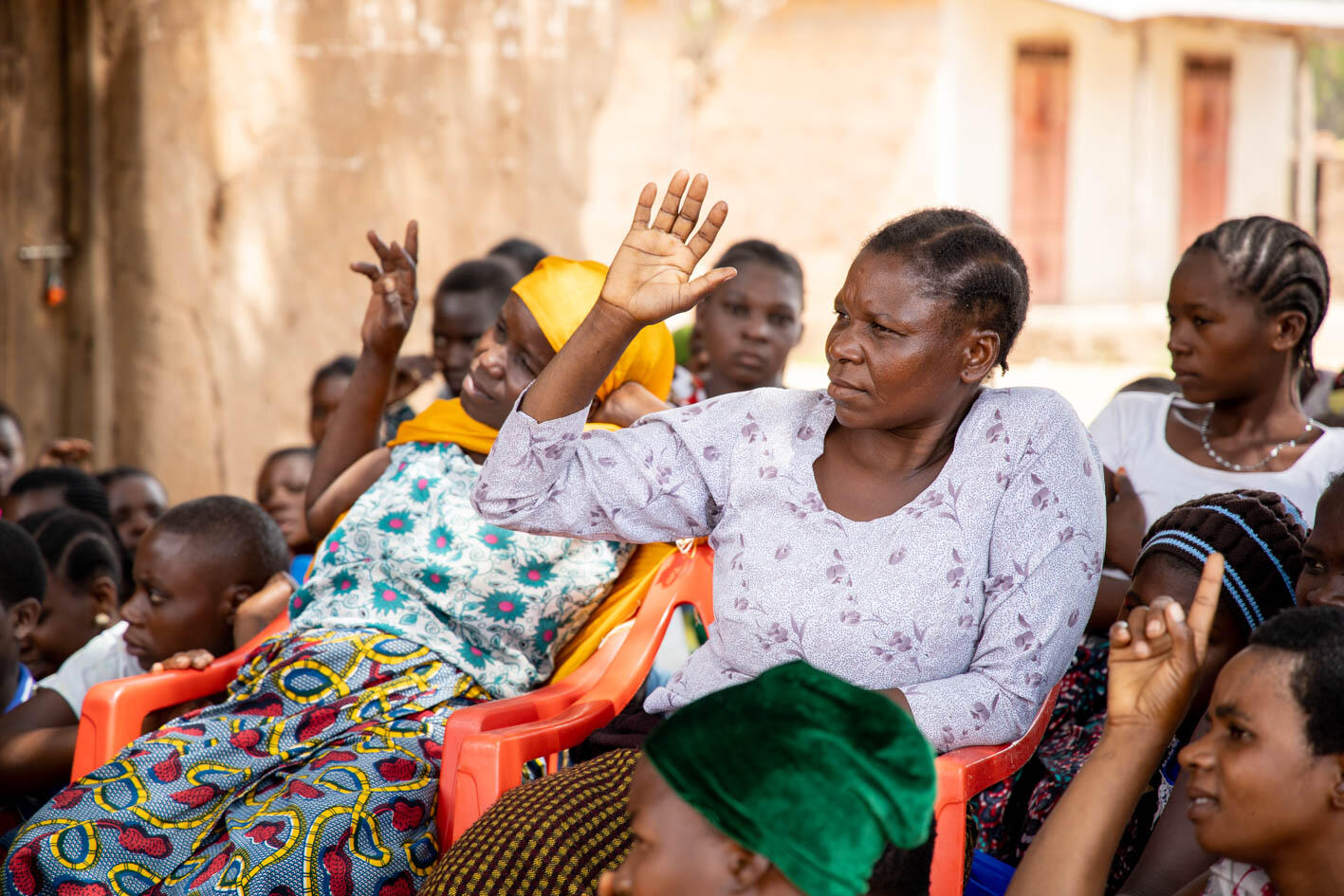Milka says she first visited the Knowledge Centre in her village Malito, in Msalala District, Shinyanga Region, Tanzania, because she is naturally curious and likes to know what is going on in her community! What she has learnt there since, she says, together with the support she receives from the community leader/animator and fellow women members, has changed and reshaped her outlook on life – particularly her understanding of gender-based violence (GBV) and the different forms it can take.
“I personally accepted the behaviour of my husband selling the harvest that we had worked so hard together to produce. Many a time he would go into town and come back home with empty pockets several days later,” says Milka. Loyce tells a similar story. She was selected as one of the animators at the Knowledge Centre and now leads outreach activities where she educates and provides information on women and girl’s rights. She passionately believes that her own daughter – and others – deserve a better future, but admits that the thought of gender equality at times seems a distant dream. “Sometimes I think it [gender equality] is impossible, but at the Knowledge Centre you meet other people with similar thoughts and I believe that if we support each other, together we can make it happen.”
The Knowledge Centre in Malito is one of two established in Shinyanga Region under the three-year Korea International Cooperation Agency (KOICA) funded UNFPA-UN Women Joint Programme. Activities under the project aim to advance gender equality efforts and ensure that rural women and girls in Ikungi District, Singida Region, and Msasala, Shinyanga, are not left behind. Milka explains that the centre provides a safe community space where women debate many things – GBV and harmful practices, gender equality, women’s rights, the importance of eliminating discrimination against girls as well as participating in leadership and political activities.
Loyce is passionate about women and girls’ rights, she says it has been her struggle for some time, and she jumped at the chance to be a leader at the Knowledge Centre. She is also a member of the Ward Children and Women’s Protection Committee – seven ward-level and 25 village-level protection committees have been set up in the Msalala district council of Shinyanga under the project to date – where she has received training to prevent and respond to violence against women and girls. She recalls the story of her neighbour’s daughter, aged 13, who was going to be married after schools closed for the holidays. The daughter’s mother had been attending sessions at the knowledge centre and knew about the harmful impacts of child marriage. She asked Loyce to come with her to speak with her husband; the proposal to marry the daughter was rejected the same day. Loyce also personally knows a number of other girls whose families have turned down marriage proposals because they now understand the importance – and right – of their daughters, like their sons, to continue their education.
“I want women and girls to have opportunities. I don’t wish for them to go through the pains and challenges I went through.”
Although it is early days – the centre only opened in October 2020 – Loyce says these are promising signs, Milka is similarly optimistic. She once dreamed of becoming a nurse, but was married at an early age, and it is this that gives her the energy to continue educating her community. “I don't want to just come and listen at the centre and go back home”, Milka asserts, “I want women and girls to have opportunities. I don’t wish for them to go through the pains and challenges I went through.” Loyce nods in agreement and says she too is working day and night to support women and girls to protect and claim their rights.
Women in Tanzania – and of the world – want and deserve an equal future, free from stigma, stereotypes and violence; a future that’s sustainable, peaceful, with equal rights and opportunities for all. To get us there, the world needs women like Loyce and Milka. As we approach International Women’s Day, with its national theme “Women in Leadership: Achieving an Equal Future”, UNFPA celebrates the accomplishments of Loyce and Milka and the tremendous efforts of many other women and girls in Tanzania who are committed to shaping a better future. As we advance through the Decade of Delivery for Sustainable Development, UNFPA will continue to support women and girls as leaders, change makers and role models in their families and communities, and support investments in services and initiatives that protect and uphold their rights so that together we can deliver on our 2030 vision of a gender-equal world.
Amir Batenga/Esther Bayliss


